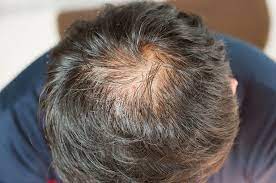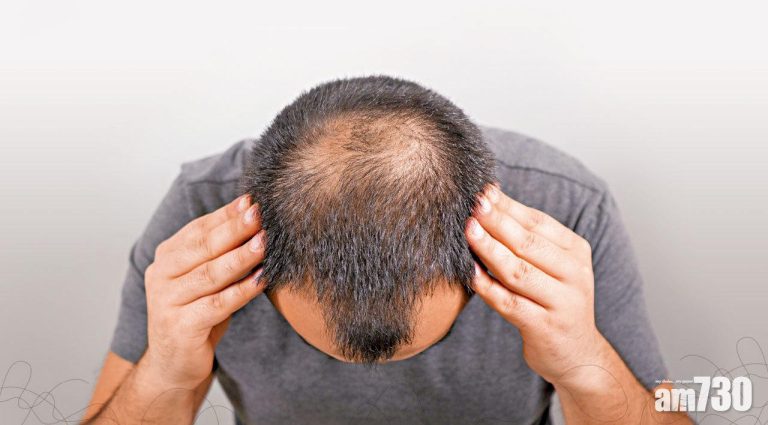Do you ever feel pressure or a clogged sensation in your ears? Painful ear pressure can be brought on by a number of causes, from illness and changes in altitude to swimming. Fortunately, there are simple techniques available for releasing the pressure – it’s important that our readers understand these so they can find relief. In this blog post, we will discuss easy ways to release ear pressure quickly and effectively – no matter what may be causing it – so that you don’t have to suffer any longer!
Introduction
The introduction of a blog post is the most important part. It sets the tone for the piece and can potentially engage readers or turn them away. It’s an opportunity to capture the audience’s attention and provide the necessary background information they’ll need in order to understand the topic discussed in the piece. A good introduction should begin with an attention-grabbing hook, explain why the topic is important, and offer a brief overview of what will be discussed. In addition to this, it should include relevant keywords that will help draw in viewers through search engine optimization (SEO) when people are searching for topics related to yours. These keywords will not only help you get more web traffic but also make sure that your readers know what they’re about to read before they even start reading. Finally, an effective introduction should set up expectations for what’s coming next and provide a smooth transition into the main body of the post – allowing readers to move easily from one idea to another without losing interest or focus.
Definition of Ear Pressure
Ear pressure is a sensation that occurs when the pressure in the middle ear is not equal to the pressure of the outside environment. This can lead to feelings of fullness, popping, and even pain in some cases. The Eustachian tube is responsible for equalizing this pressure, and if it is blocked or not functioning properly, it can lead to an imbalance between air pressure inside and outside of the ear canal.
There are several possible causes of ear pressure, such as allergies or sinus infections which can lead to an increased amount of mucus that blocks or slows down the Eustachian tube. Additionally, some people with narrow Eustachian tubes may find themselves experiencing ear pressure due to changes in altitude, such as during a flight or scuba diving. In some cases, an increase in atmospheric pressure can cause the Eustachian tube to become blocked and lead to a feeling of fullness or discomfort in one’s ears.
In order to relieve ear pressure, there are several potential solutions. One option is simply swallowing or yawning, which opens up the Eustachian tube by creating more space in your throat and allowing air passage through your nose into your ears. Other treatments include taking decongestants to reduce inflammation of the Eustachian tube and using antihistamines if allergies are causing your symptoms. Eating slowly while chewing gum can also help equalize air pressure inside and outside your eardrum. Lastly, an ENT doctor may recommend having tubes inserted into your ears if all other remedies fail to provide relief from symptoms of ear pressure.
Causes of Ear Pressure
The sensation of ear pressure is caused by a variety of different factors. In some cases, the pressure may be caused by inflammation of the mucous membranes that line the inside of your ears, which can be a symptom of allergies or infection. Other causes of ear pressure include Eustachian tube dysfunction, barometric pressure changes from flying or diving underwater, and even temporomandibular joint (TMJ) disorder. All these conditions can cause swelling in the ear canal, leading to feelings of discomfort and fullness. Additionally, sinus infections can lead to a build-up of fluid in the inner ear which can cause feelings of pressure as well. If untreated, this can also lead to hearing loss due to damage from the fluid buildup.
In more serious cases, ear pressure can be due to tumors growing on either side of your skull that press against your eardrum and create a feeling of fullness or muffled hearing. Tumors are typically benign but can still cause significant discomfort in rare cases. Additionally, certain medications such as decongestants and antihistamines may also increase inner ear pressure as they dry out the eustachian tubes and affect normal airflow through them. It is important to visit your doctor if you experience any symptoms associated with ear pressure as they may need to run further tests to identify the underlying cause so it can be treated appropriately.
Understanding the Symptoms of Ear Pressure
Ear pressure is a sensation of fullness or discomfort in the ears. It can be caused by a variety of conditions, including allergies, sinus infections, and even earwax buildup. The most common symptom of ear pressure is pain or discomfort in the ear. Other symptoms may include muffled hearing, ringing in the ears, feeling like your ears are plugged up, and occasional dizziness. In some cases, fluid may build up behind the eardrum and cause severe pain. If you are experiencing any of these symptoms, it is important to seek medical attention as soon as possible to determine the underlying cause and get appropriate treatment.
In order to properly diagnose ear pressure, your doctor will likely perform a physical exam as well as imaging tests. Your doctor may also take a swab sample from the inside of your ear to test for infection or other irritants that could be triggering your symptoms. Depending on the underlying cause of your ear pressure, treatments such as antibiotics or antihistamines may be prescribed to reduce inflammation and treat any bacterial infections. If wax buildup is causing your discomfort, then your doctor may recommend using over-the-counter drops or having a procedure done to remove the wax from your ear canal.
It’s important to note that if left untreated, long-term exposure to ear pressure could result in permanent damage or hearing loss due to irritation caused by chronic inflammation of the inner ear structures. Therefore, it’s essential that you receive prompt diagnosis and treatment if you are experiencing any signs of ear pressure so that further damage can be prevented.
Encouragement to Seek Professional Medical Advice
It is important to always seek professional medical advice when feeling unwell. Doing so will ensure that you get the proper care and treatment for whatever medical issues you may be facing. Professional medical advice can come from a variety of sources, including your primary care doctor, a specialist, or even a health clinic. No matter what type of provider you choose, it’s important to remember that they are there to help you in any way they can to make sure that you receive the best possible care.
Professional medical advice will provide you with an accurate diagnosis and treatment plan for your particular condition. This means that your healthcare provider will be able to accurately diagnose any underlying causes for your symptoms and develop a tailored treatment plan based on those findings. A tailored treatment plan is important because it ensures that any medications prescribed are specific to your needs and work with your body in order to help manage your symptoms more effectively. Furthermore, professional medical advice can also address any lifestyle changes or dietary adjustments that may need to be made in order to help manage certain conditions more successfully over time.
Most importantly, seeking professional medical advice is essential if you suspect something might be wrong with your health or if something doesn’t feel quite right. Ignoring potential warning signs or allowing minor symptoms to go untreated could lead to more serious or long-term health issues down the road if not addressed in a timely manner by a qualified healthcare professional. Remember: Your health should always be taken seriously, so never hesitate to speak with a healthcare provider if something doesn’t feel right!
If you are experiencing ear pressure, you are not alone. Many people suffer from this condition on a regular basis. However, there are easy solutions to releasing the pressure that builds up in your ears. From over-the-counter treatments to home remedies, there is bound to be a solution that works for you. If the pain persists or gets worse, it is important to seek professional medical help as soon as possible.
Read More: There are three common types of dental implant in dubai that you can choose from Endosteal, subperiosteal, and zygomatic. Endosteal is the safest and most common, followed by subperiosteal, and then zygomatic being the last and most complex.




















+ There are no comments
Add yours